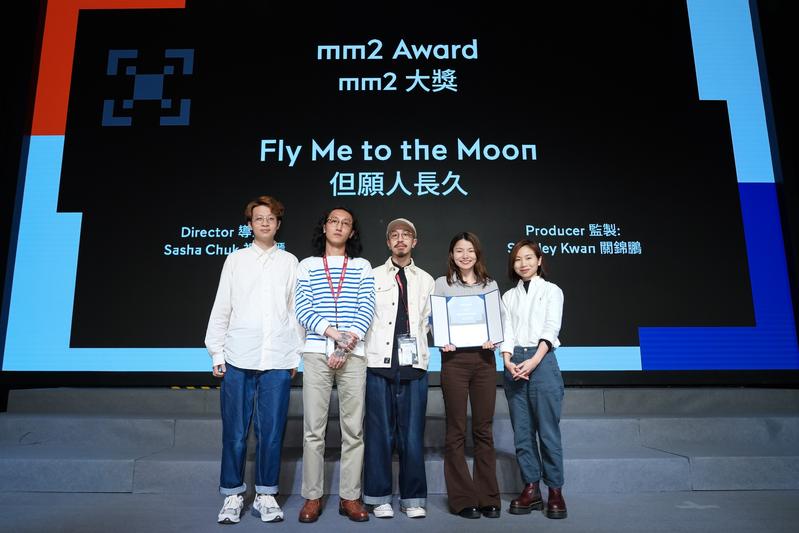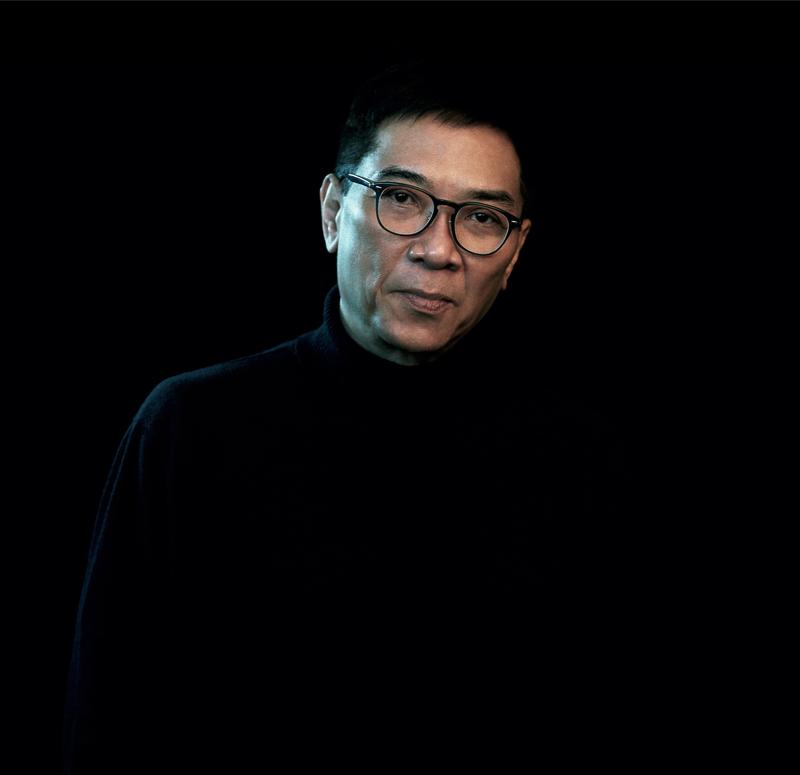 Sasha Chuk (above second from right) took home four awards for her work in progress, Fly Me to the Moon, at the 21st Hong Kong-Asia Film Financing Forum, a platform connecting aspiring filmmakers with potential partners and mentors. Chuk’s project is produced by leading filmmaker Stanley Kwan. (PHOTO PROVIDED TO CHINA DAILY)
Sasha Chuk (above second from right) took home four awards for her work in progress, Fly Me to the Moon, at the 21st Hong Kong-Asia Film Financing Forum, a platform connecting aspiring filmmakers with potential partners and mentors. Chuk’s project is produced by leading filmmaker Stanley Kwan. (PHOTO PROVIDED TO CHINA DAILY)
If you’d spoken to Jacob Wong in the lead-up to the 21st Hong Kong-Asia Film Financing Forum (HAF21), you’d have found him excited to be returning to face-to-face meetings and swinging back fully into action after having to work around the constraints of three pandemic-hit years.
If you’d seen Wong during the March 13 to 15 event itself — at the Hong Kong Convention and Exhibition Centre in his role as director of Hong Kong International Film Festival Industry, which oversees HAF — you’d likely have noticed an air of satisfaction about how it all played out. And that’s mostly because HAF21 projects showed an exciting diversity that promises much for the immediate future of film in Hong Kong — and beyond.
“Although we had adapted to working online for the past three editions, it’s not the same,” says Wong. “Nothing beats the face-to-face experience, and we should continue to promote that as much as we can. We’ve had a diverse range of projects at various stages of development and are excited to see what becomes of them.”
That much was on show during the awards ceremony that brought HAF’s three days of meetings — and hope — to a close. The diversity that Wong talks about was writ large across the winners of the 20 prizes awarded, which together are worth more than $170,000 (HK$1.3 million) and must now be used to help finish the films. This year’s biggest winner was Fly Me to the Moon, a project led by young Hong Kong filmmaker Sasha Chuk, which, according to HAF, “tracks the struggles of two sisters who moved from Hunan to Hong Kong in the ’90s”.
 Sasha Chuk took home four awards for her work in progress, Fly Me to the Moon, at the 21st Hong Kong-Asia Film Financing Forum, a platform connecting aspiring filmmakers with potential partners and mentors. Chuk’s project is produced by leading filmmaker Stanley Kwan (above). (PHOTO PROVIDED TO CHINA DAILY)
Sasha Chuk took home four awards for her work in progress, Fly Me to the Moon, at the 21st Hong Kong-Asia Film Financing Forum, a platform connecting aspiring filmmakers with potential partners and mentors. Chuk’s project is produced by leading filmmaker Stanley Kwan (above). (PHOTO PROVIDED TO CHINA DAILY)
After repeated trips to the stage to collect the record four prizes her project won — the Heaven Pictures Young Director Award, CCG Grand Award, mm2 Award and WIP Award — Chuk kept the message short and sweet by saying the onus was now on her team to simply get the film made.
That being precisely what HAF is designed to help filmmakers do — arranging, among other things, pitching sessions with potential partners and key players from the industry as projects are shepherded through the production process. Acclaimed auteur Stanley Kwan is on board as the producer of Fly Me to the Moon. As Wong explains, HAF is increasingly looking to such pairings of the experienced with the less so. Other luminaries in the mix this year included mainland director Tian Zhuangzhuang, and veteran China-based Italian producer and festival director Marco Mueller, toward what Wong calls setting up a “filmmaking ecosystem”.
He mentions that inviting industry heavyweights to mentor fresh talent began around five years ago. “We’re beginning to see the results, especially in relation to Hong Kong cinema,” Wong says, adding, “These young people have ideas, and they can see that it’s important to have someone with experience involved.”
Another multiaward-winner was mainland director Guan Tian’s The Poison Cat, described, intriguingly, by one judge as a blend of “the genre of folk horror with a female narrative based on the Chinese legend of the Qiang tribe, passed down through the generations”.
This year’s HAF was set against the backdrop of an apparently booming local industry — the past 12 months having seen the release of a string of local box-office hits. Overall there were 43 projects on show — among them 15 works in progress — out of 350 submitted. Twenty-two involved a first-time director.
“These projects come to us at different stages of production, and we try to help them improve, even from the writing stage,” explains Wong, adding that the aim is to “get to the stage where (a project) will be seeking investment, and then we help them, hopefully, find exposure internationally”.


